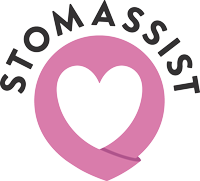
Facing an ostomy surgery can be overwhelming, but with the right preparation, you can navigate this journey with confidence and ease. Whether you’re scheduled for a colostomy, ileostomy, or urostomy, understanding what to expect and how to prepare can significantly impact your recovery and quality of life post-surgery.
Understanding Ostomy Surgery
An ostomy is a surgical procedure that creates an opening (stoma) in the abdomen to allow waste to leave the body. This might be necessary due to conditions such as colorectal cancer, Crohn’s disease, diverticulitis, or other gastrointestinal or urinary issues. There are three main types of ostomies:
- Colostomy: An opening from the colon.
- Ileostomy: An opening from the small intestine.
- Urostomy: An opening for urine to pass, typically due to bladder removal.
Pre-Surgery Preparation Steps
1. Educate Yourself
Knowledge is power. Learn as much as you can about your specific type of ostomy. Consult your surgeon, read reputable medical sources, and consider joining support groups. Understanding the procedure and post-operative care will help alleviate anxiety and make you feel more in control.
2. Discuss with Your Healthcare Team
Have thorough discussions with your surgeon, ostomy nurse, and other healthcare providers. Ask questions about the surgery, recovery process, and lifestyle changes. It’s also essential to understand the location of your stoma, as this can affect your clothing and daily activities.
3. Plan Your Post-Surgery Care
Arrange for help at home for the first few weeks post-surgery. This could be family, friends, or professional caregivers. You’ll need assistance with daily activities until you regain your strength and mobility.
4. Prepare Your Home
Set up a comfortable recovery area at home with easy access to essential items. Stock up on medical supplies, such as ostomy bags, skin barriers, and cleaning products. Having everything you need within reach will make your recovery smoother.
5. Consider Your Diet
Discuss dietary changes with your healthcare provider. After surgery, your digestive system will need time to adjust. You may need to follow a special diet initially and gradually reintroduce different foods. Staying hydrated is crucial, so drink plenty of fluids.
6. Emotional Preparation
It’s normal to have mixed emotions about your surgery. Consider speaking with a mental health professional to help manage anxiety, depression, or body image concerns. Connecting with others who have undergone ostomy surgery can also provide valuable support and perspective.
7. Practice Stoma Care
If possible, schedule a session with an ostomy nurse before your surgery. They can demonstrate how to care for your stoma, change ostomy bags, and manage potential complications. Hands-on practice will boost your confidence and competence in managing your ostomy.
8. Plan for Hospital Stay
Pack a hospital bag with comfortable clothing, toiletries, and personal items. Include loose-fitting clothes that won’t press on your stoma site. Don’t forget to bring a notebook to jot down important information and questions for your healthcare team.
Final Thoughts
Preparation is key to a successful recovery from ostomy surgery. By educating yourself, planning ahead, and seeking support, you can approach your surgery with confidence and peace of mind. Remember, you’re not alone on this journey. There are resources and communities ready to support you every step of the way.
This guide is designed to help you feel more prepared and empowered as you approach your ostomy surgery. If you have any questions or need further information, don’t hesitate to reach out to your healthcare team or support groups. Together, we can navigate this path towards a healthier, more fulfilling life.
Join the STOMASSIST Community
Sign up for STOMASSIST today and start receiving the personalized support you deserve.
Everything is easier
with A helping hand
Having someone to talk to, who went through the same experiences,
is the best way to find answers and solutions.
